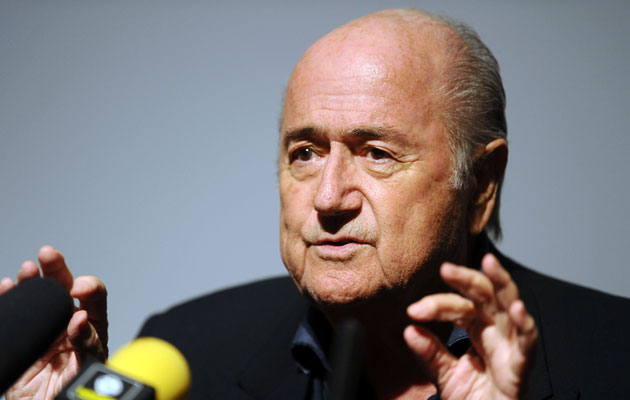Here we go again – it’s another FIFA presidential election. What a waste of a year.
Blame Sepp Blatter. By breaking his promise and standing for re-election last year he prompted critics and investigators to re-double their efforts into unmasking the culture of corruption to which he had contributed, at the least by acquiescence, in the corridors of power.
By insisting on carrying on – which had been his clear intention from at least two years out – Blatter also encouraged the greediest of his neighbours around the FIFA exco boardroom to believe that their regional reigns built on patronage and/or bribery were secure for years to come.
Hence almost everyone (bar a handful including Julio Grondona, his death the ultimate act of escapology) were safely checked in at the Baur au Lac on that fateful morning of last May 27 when the hotel’s roof fell in, so to speak.
Not only were the likes of Jeffrey Webb, Jose Maria Marin and Eugenio Figueredo safely checked in they were safely carrying on shady business as usual and thus all the paperwork, emails, electronic banking links etc were all still in working order.
Platini factor

Michel Platini’s reluctance to challenge Sepp Blatter ultimately led to his downfall.
Had Blatter been winding down his own operation – or, at least, negotiating an ‘understanding’ with his preferred ‘dauphin’ Michel Platini – then his acolytes might already have been covering their tracks.
Had Platini taken over from Blatter last May it is also perfectly safe to assume that the world would never have learned of the ‘disloyal payment’ between them; also safe to assume that Platini would have replaced Jerome Valcke within weeks of assuming power and FIFA’s departing secretary-general would have bought himself a new super-fast car to celebrate and zoomed off into a comfortably early (and quiet) corporate retirement.
Platini was his own worst enemy. In both 2011 and 2015 he had the opportunity to negotiate a presidential take-over. Sure, it would have been difficult to have prised Blatter’s fingers off the reins of power but he could have been ‘persuaded.’
Instead the house of dollar bills collapsed in a far more spectacular fashion than anyone could have expected.
Not that FIFA has been alone in scandal-shrouded shame. The governance scandals which have wreaked havoc within cycling’s UCI, athletics’ IAAF and tennis have proved that worldwide sport has been wide open to corruption through its fantastical popular and financial success.
Sport in general and football in particular in this case is run by governing bodies which possess limited control over their activities. They may organise competitions and commit to lucrative contracts but, as civil organisations, they lack policing powers; nor are they subject to the corporate laws of business.
They cannot police themselves. How convenient.
Swiss bolt-hole
Sports federations exist in a murky nether world which is why more than 40 are headquartered in Switzerland whose banks are only now being dragged – kicking and screaming – into the real world of corporate responsibility (As much as that is possible with bankers).
The bigger the sport, the bigger the temptations and the bigger they are the harder they fall. Thus FIFA; thus Blatter.
So, by tonight FIFA will have a new president, only the ninth in its 112-year history. He will emerge from among the five candidates entered into the race to succeed the disgraced, banned, long-serving 79-year-old.
This is not the most exciting quintet. But perhaps that is all to the good. FIFA needs to abandon the cult of personality leader in favour of a hands-on, head-down president. Only such single-minded focus offers any prospect of rescuing an organisation whose acronym has become a byword for corruption.
The start of meaningful, root-and-branch reform under a new president may provide some buoyancy and buy time. Nothing more. The extraordinary congress is not the beginning of the end of FIFA’s troubles, merely the end of the beginning.







